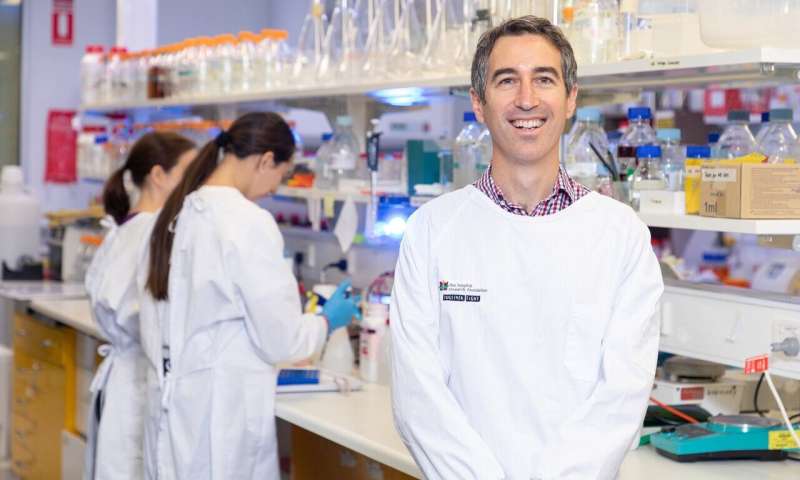Flinders University Associate Professor Luke Selth, from the Flinders Health and Medical Research Institute. Credit: The Hospital Research Foundation
Australian research has identified a new mechanism in which prostate cancer cells can 'switch' character and become resistant to therapy.
These findings, just published in Cell Reports, are an important development in unraveling how an aggressive subtype of prostate cancer, neuroendocrine prostate cancer (NEPC), develops after hormonal therapies.
It is well established that some tumors show increased cellular 'plasticity' in response to new or stressful conditions, such as cancer therapy, says lead researcher Associate Professor Luke Selth, from the Flinders Health and Medical Research Institute.
This plasticity allows the cancer cells to adapt and continue to grow by evolving into different cell types that no longer respond to the therapy.
"Increased cellular plasticity is increasingly recognized as a key feature by which prostate cancers become resistant to therapy and progress to a lethal stage," he says.
"Our new study reveals that a particular molecule, the microRNA 'miR-194', can enhance this plasticity in prostate cancer, leading to the emergence of NEPC.
"By targeting miR-194, we were able to slow down and inhibit the growth of prostate cancer models with neuroendocrine features."
Associate Professor Selth says while this study is a long way from clinical application, it "nevertheless provides us with important new insights into how prostate cancers 'evolve' in response to therapy".
There are currently no effective treatments for NEPC, with estimates up to 15% of men may develop this aggressive subtype of prostate cancer after hormonal treatment—a major problem because these men face "very poor outcomes".
"By revealing another regulator of prostate cancer cell plasticity that can promote evolution of tumors, our study highlights why prostate cancer is so difficult to cure.
"While this reality is sobering, we hope that our study and lots of other research going on around the world will eventually lead to smarter, more targeted ways to treat NEPC or even prevent its emergence," Associate Professor Selth says.
More information: Post-transcriptional gene regulation by microRNA-194 promotes neuroendocrine transdifferentiation in prostate cancer, Cell Reports (2021). DOI: 10.1016/j.celrep.2020.108585
Journal information: Cell Reports
Provided by Flinders University





















